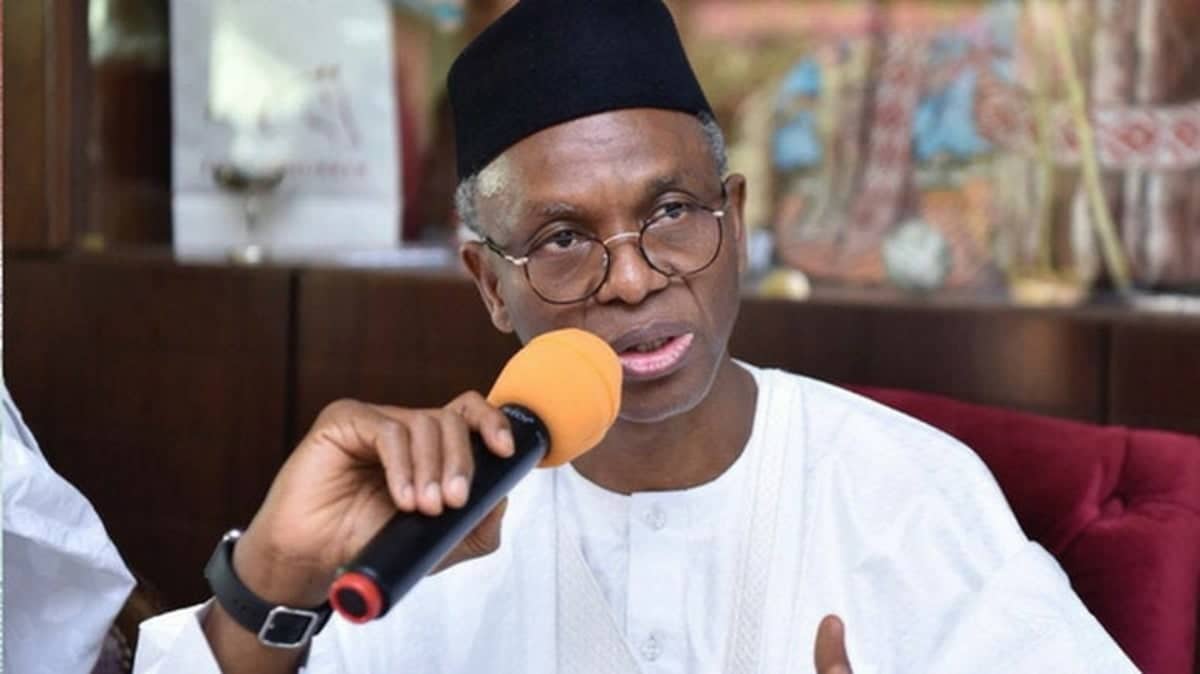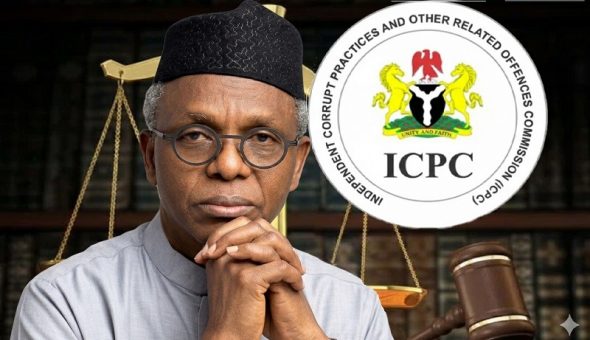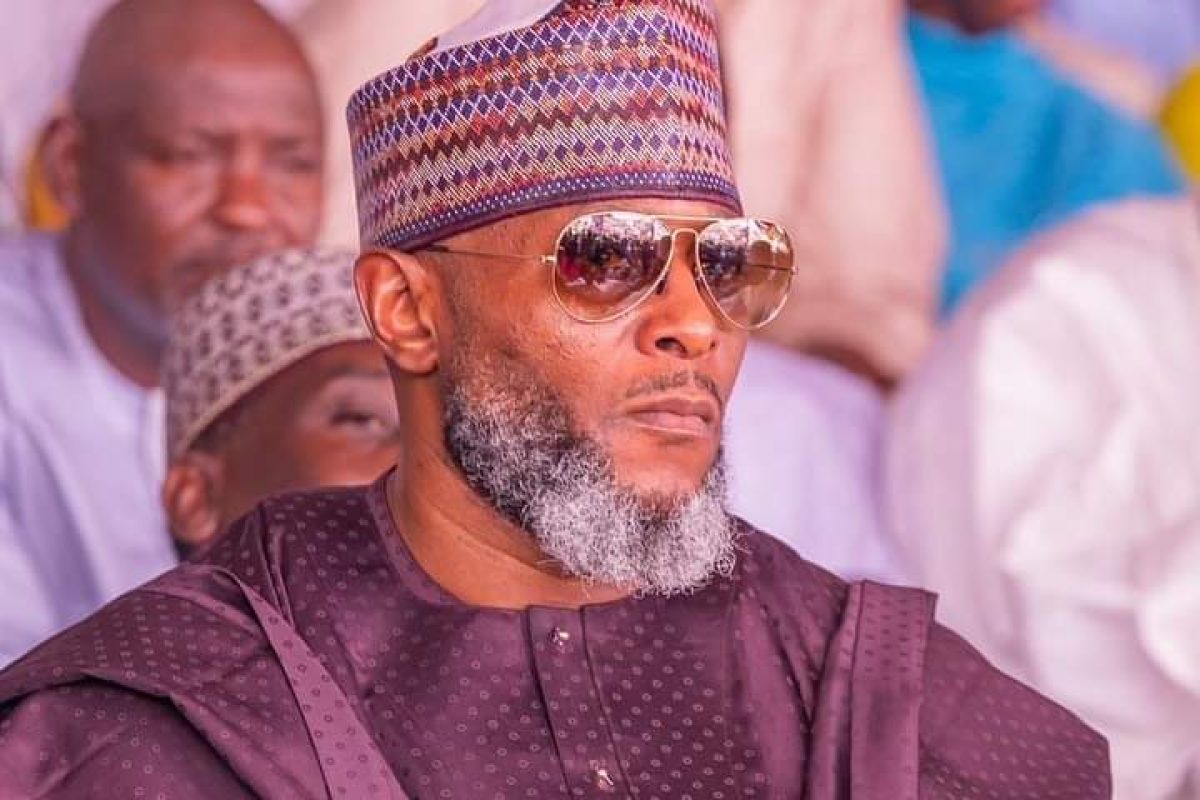How National Assembly made Buhari reluctant hero of electoral reform, devolution of powers
Shortly before the 2011 presidential election, the candidate of the defunct Congress for Progressives Change (CPC), Muhammadu Buhari, flanked by associates, addressed the press at the International Conference Centre in Abuja. In the middle of the briefing, the retired general could not hold back tears as he dabbed his cheeks with a handkerchief.
Was he crying about his previous two defeats at the polls or was it due to the “love he has for the country?”
Over 800 Nigerians reportedly lost their lives in post-election violence that year; violence that many blamed the supporters of Mr Buhari for.
“The monkey and baboon” comment the CPC candidate made before the polls was cited as an incitement to his followers in the North after he lost the election.
Four years later, Mr Buhari defeated the incumbent president, Goodluck Jonathan. While the alliance of the major opposition parties has been credited for making the feat of Mr Buhari possible, another major factor was the reforms embarked on by the Attahiru Jega-led Independent National Electoral Commission (INEC), particularly the introduction of card readers.
Even though Mr Buhari never personally promised electoral reforms during his campaign, his party in its manifesto stated that “APC promises free and fair elections at all levels”.
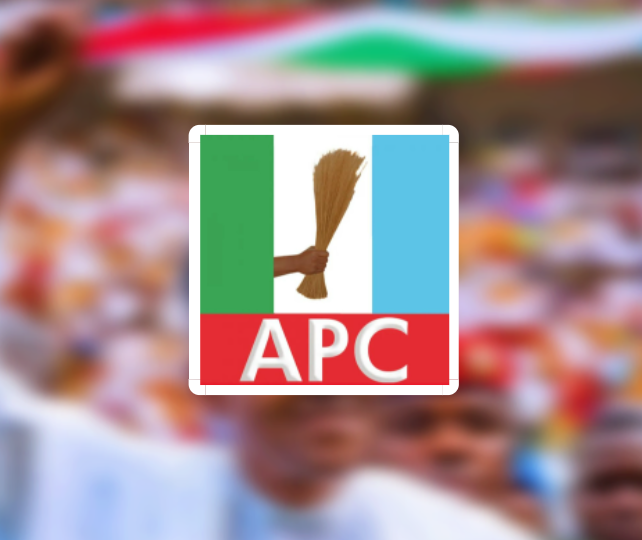
His past as a former dictator turned “reformed” democrat brought elections held under his watch into close scrutiny.
Early missteps
The first litmus test of elections under Mr Buhari was the Kogi State off-season governorship election. The election was declared inconclusive after the leading candidate, Audu Abubakar of the ruling party, died while the results were being collated. The Imo State election had earlier been declared inconclusive in April during the general elections, hence, “inconclusive” crept into the political lexicon.
One month later, the Bayelsa governorship election was also declared inconclusive. This series of events established doubt in the minds of many as to the direction of the electoral process under the retired general.
In 2016, Mr Buhari set up a committee chaired by former Senate President, Ken Nnamani to review the electoral process. However, many believe that the president should instead have picked up the Justice Muhammad Uwais committee’s report of 2008 or the National Conference report of 2014 for possible electoral reforms. It is unclear what became of Mr Nnamani’s committee’s report after it was submitted in 2017.
When the 2018 Osun State governorship election was declared inconclusive, and violence marred the supplementary polls, questions were raised about the credibility of elections under Mahmood Yakubu, the INEC Chairman appointed by Mr Buhari.
The attitude of Mr Buhari to the electoral amendment bill in the National Assembly did not help in terms of optics.

Rejection of Electoral Bill in 8th Assembly
While all these were going on, the National Assembly was making an effort to amend the 2010 Electoral Act – with one major factor being the provision of legal backing for the use of technology such as card readers and other devices.
Mr Buhari thrice rejected the bills passed by the lawmakers – on one occasion because the bill stipulated the sequence of elections. In his rejection letters, the president stated that the election sequence clause violates section 72 of the 1999 constitution which guarantees INEC independence in managing elections.
Even when the parliament removed the portions the president complained about and passed the bill again in 2018, Mr Buhari argued that implementation of the new law would be impossible because it was passed too close to the general election. And so, the 2019 general election was held without the needed legal framework for technology in the law.
“Election results management remains the weakest link in Nigeria’s electoral process,” YIAGA Africa, an election focus organisation, stated in a post-election report on the 2019 general elections.
The YIAGA’s report was a damning indictment of the conduct of the electoral process. Some of the flaws highlighted had to do with the legislative framework, particularly the management of election results.
However, in the build-up to the 2023 general election, Mr Buhari assented to amendments that improved Nigeria’s election including the use of technology, factors that experts believe led to the improvement in the conduct of subsequent elections.

“We have to give the outgoing administration some credit, for the fact that we have some level of fair play,” Earnest Ereke, an associate professor at the University of Abuja, said while reacting to the performance of the Buhari’s administration on electoral reforms.
Mr Ereke said Mr Buhari should be commended for not interfering in the electoral process but noted that the performance of those saddled with the responsibility leaves much to be desired.
“We saw some elections conducted, particularly the off-circle elections, where we even saw that the ruling party was defeated. In Osun State, the ruling party was defeated, but the president did not interfere with the process. We have also seen in Anambra State that the president did not interfere. To that extent, we can say the non-interference of the president in terms of deploying incumbency powers to influence the elections on behalf of his party is commendable,” Mr Ereke said.
Technology: Silver bullet by National Assembly
When Mr Buhari once again rejected the electoral amendment bill in December 2021, many believed that he was at it again.
The president specifically singled out section 87, which is the section on the mode of party primaries. In the letter of rejection to the National Assembly, he said the mandatory directive on primaries in the bill has financial, legal and security consequences.
While members of the National Assembly favoured the direct primary mode, state governors preferred the delegate system.
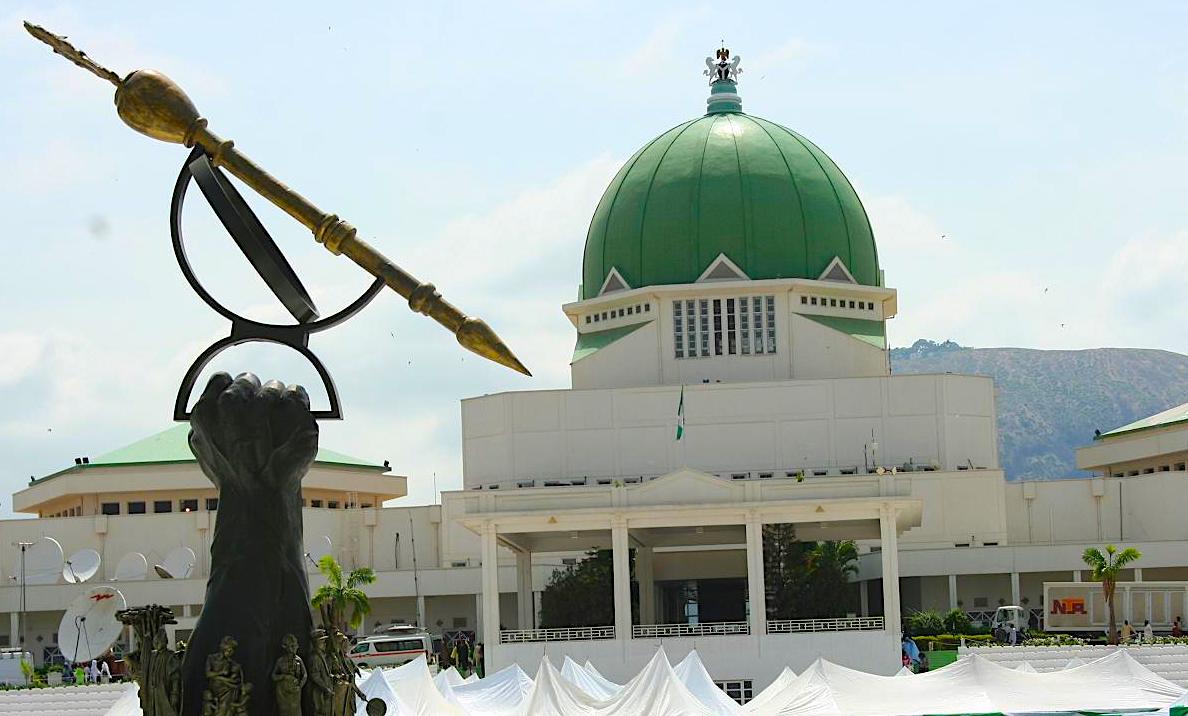
Following a tense period, the lawmakers conceded and passed the bill as directed by Mr Buhari – even though they later blamed the political misfortunes of many of them in the primaries on the law.
Although Mr Ereke commended Mr Buhari and the lawmakers, he was sceptical about the implementation of the law. To him, the outcry over the outcome of the 2023 presidential election shows that the electoral body is yet to meet the expectation of Nigeria.
By and large, the lawmakers gave Mr Buhari the legacy bill — providing legal backing to the use of technology in elections.
Reluctant hero of restructuring
Mr Buhari will exit power on 29 May. While his performance has drawn mixed reactions, he will be leaving a legacy in one area many least expected him to excel – devolution of power.
Under his watch, states now have power over railways, correctional facilities (prisons), and the generation, transmission, and distribution of electricity.
What makes the feat intriguing is that Mr Buhari spent his eight years in office asking “What is restructuring?” As of January 2022, he was still asking proponents of restructuring what the concept means.
“Those that talk of restructuring, I want them to define the concept. Do they want more states, at whose expense?” he said during a rare interview on Channels TV.
This comment is not an isolated one, his conversation around restructuring was always more of questions and outright dismissal of the concept.
In 2021, in remarks at Ahmadu Bello University in Zaria, Mr Buhari could not conceal his disdain for the concept.
“Those who are discussing restructuring, my question is what are you going to restructure?” Mr Buhari asked.
“If you ask many Nigerians what are they going to restructure, you will find out that they have nothing to talk about. Some of them have not even studied the 1999 Constitution. The 1999 Constitution is almost 70 to 80 per cent 1979 constitution.
“The other issue is that those who are calling for restructuring and conference on what they call ethnic nationality; if you go to Southern Kaduna, Taraba, who is to represent them? We have different combinations of ethnicities in many states. Even in Kano and Kaduna, Igbo have properties. The same goes with Yorubas,”
In a national broadcast in 2018, Mr Buhari said, “When all the aggregates of nationwide opinions are considered, my firm view is that our problems are more to do with process than structure.”
Even during his first victorious presidential campaign, Mr Buhari did not consider restructuring as a major talking point, despite his party, the APC having devolution of power in its 2015 manifesto. The APC in the document promised to improve federalism.
“Create a more equitable distribution of national revenue to the states and local governments because this is where grass-root democracy and economic development must be established,” the party stated in the manifesto.
The party further promised to “devolve control of policing and local prisons to states and give the right to nominate state police commissioners to the governors.”
In direct contradiction with his party on state police, last year Mr Buhari made it clear that state police is “not an option”.
“State police is not an option. Find out the relationship between local government and the governors. Are the third tier of government getting what they are supposed to get constitutionally? Are they getting it? Let the people in local government tell you the truth, the fight between local governments and the governors,” he said during an interview.
Members of the National Assembly who share his view on state police were more than glad to reject the bill.
Mr Buhari and his party had boycotted the national conference organised by the Jonathan administration, so there was little hope in the president ever implementing the report.
Shunning El-Rufai’s committee
The 2014 National Conference report was definitely not an option as his party boycotted the conference. It was therefore not surprising that he ignored the report on the shelf. However, one would have expected him to consider the report of a committee of his party on the issue.
While President Buhari was seeking ‘answers’ on restructuring, his party already provided answers as far back as 2018 when the committee chaired by Kaduna State Governor Nasir Elrufai submitted its report on restructuring. The committee was constituted by the then APC national chairman, John Oyegun.

The committee made some bold recommendations such as the merger of states, change of derivation principle, fiscal federalism and revenue allocation, devolution of powers, state police, resource control, referendum, judiciary, citizenship, and local government.
Mr Buhari ignored the buffet of options presented by the committee as the report continued to gather dust at the national secretariat of the party.
The needed constitutional alteration required to implement the recommendations of Mr El-Rufai’s committee would not have been a challenge for Mr Buhari, whose party controlled the two chambers of the National Assembly and the majority of the state Houses of Assembly – the two major institutions needed for the alterations.
National Assembly to the rescue
In the absence of willingness on the part of Mr Buhari for radical restructuring, once again, the National Assembly presented him with legislation for the devolution of powers by removing some items from the exclusive list and adding them to the concurrent list.
The lawmakers deleted airport, railway, power grid, correctional facilities, and fingerprint, identification and criminal records from the exclusive list. But they refused to remove value-added tax from the exclusive list.
However, the president assented to three – railway, power grid, and correctional facilities. By implication, states can now act in these three areas, a major devolution of responsibility to states.
“I cannot give him credit for restructuring, because restructuring is about resource control,” Rolland Igbakpa, a member of the House of Representatives said during a telephone interview with PREMIUM TIMES.
“It is not enough to give powers and responsibilities to states without giving them control over their resources. You are still holding the resources of the region, give them the power over their resources,” Mr Igbaka said.
The lawmaker argued that the president could have achieved so much in the area of restructuring if he had given “a positive body language” that would have spurred lawmakers to support bills on changing the revenue-sharing formula.
“We made two attempts to increase derivation from 13 per cent to 50 per cent but you know that the parliament is skewed toward one region. The APC promised restructuring but nothing was done. If there is a political will on the restructuring, the lawmakers kicking would have fallen in line. The executive did not show the needed political will, “ Mr Igbakpa stated.
On the revenue sharing arrangement, Mr Buhari still has the proposed formula by the Revenue Mobilization, Allocation and Fiscal Commission (RMFAC) submitted to him in April. However, he is yet to transmit the recommendation to the National Assembly as required by law.
Also Read: Buhari Seeks Senate’s Approval for $556M, £98M, N226B Judgment Debt Payments
The proposed formula reduced the federal government’s share from 52.68 per cent to 45.17 per cent while it increased states’ share from 26.72 per cent to 29.79 per cent. Equally, local governments would get a raise from the current 20.60 per cent to 21.04 per cent. Derivation, the percentage given to states where resources are derived, was retained at 13 per cent.
Already in the final days of his administration, Mr Buhari is yet to transmit the proposal to the National Assembly despite appeals from the state governors. This could be another missed opportunity in devolution.
But by and large, Mr Buhari has emerged as a hero of restructuring even if a reluctant one.

